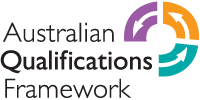CLET RPL is Helping Military and Police Transition with Conf...
This unit specifies the skills and knowledge required to apply oral, non-verbal and written communication skills to maintain security.
It includes:
gathering information from a range of sources including standard operating procedures and signs written in English to understand and comply with workplace policies and legal rights and responsibilities
using observation, listening, oral and non-verbal communication skills to interact with others and request behaviour modification in a manner that accounts for cultural differences, avoids aggression or hostility, and encourages conflict resolution
using telephone and radio systems to report security risks
using notebooks and information technology to record and store incident details.
It applies to people working under general supervision as members of a security team.
This unit may form part of the licensing requirements for people engaged in security operations in those states and territories where these are regulated activities.





